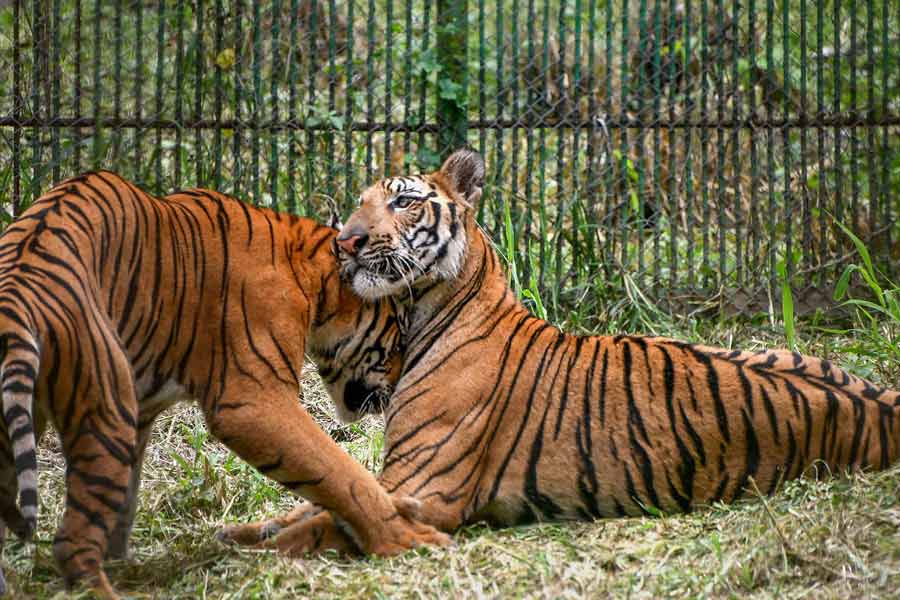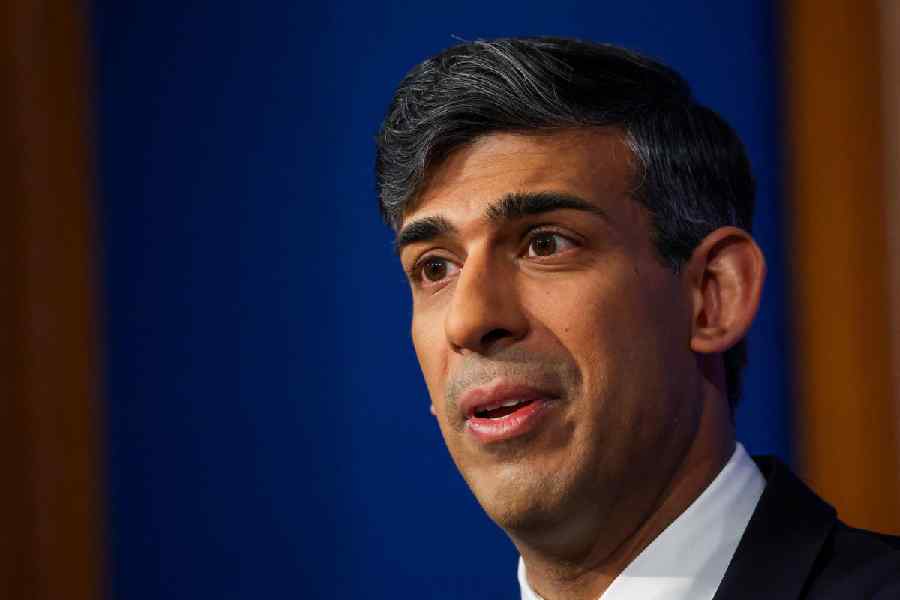The number of tigers in the Dudhwa Tiger Reserve area has risen to 135 from a previous population of 82 - a jump of more than 64 per cent, an official said.
Dudhwa Tiger Reserve Deputy Director Rengaraju Tamilselvan said the number of tigers, including the ones outside the reserve, has also grown from 107 to 153, clocking a growth of around 43 per cent.
He said the record growth has sent the Dudhwa Tiger Reserve to the top among all tiger reserves in the country.
The data for all tiger reserves in the country was revealed on International Tiger Day on Saturday.
The DTR authorities also organised a marathon relay-patrol along the Dudhwa forest areas on Friday which culminated on International Tiger Day with more than a dozen teams from DTR covering a distance of 4,898 km on foot, bicycle, boat, and elephant.
The patrol covered the entire length and breadth of Dudhwa National Park (DNP), Kishanpur wildlife sanctuary, and areas of buffer zone, including border areas along Pilibhit, Bahraich, and Nepal, Tamilselvan told PTI.
He said the 24-hour-long marathon patrol was flagged off from Dudhwa tourist premises Friday morning by field director Lalit Verma, who too was part of a patrolling team.
Authorities have launched a major drive for the grassland management at the national park, which plays a key role in maintaining the prey base in the forests.
Tamilselvan said that a team of experts from Madhya Pradesh had earlier suggested five models of grassland management to the park authorities.
He said to study the effectiveness of all these models, six grassland areas spread across two hectares each were being engaged in the Sathiayana range, Belrayan range, and south Sonaripur range.
Except for the headline, this story has not been edited by The Telegraph Online staff and has been published from a syndicated feed.










